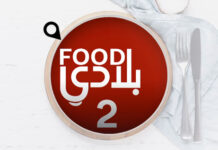Between late June and early August, Morocco carried out a nationwide livestock census that has produced the most detailed snapshot to date of the country’s animal farming sector. Conducted under the guidance of the Ministry of Agriculture and in line with Royal Directives, the operation aims to support a targeted and sustainable rebuilding of the national herd. The results are clear: nearly 33 million animals are currently spread across the country.
Sheep dominate the landscape, with more than 23 million recorded—by far the largest group. They’re followed by goats at 7.47 million, cattle at 2.09 million, and camels at just over 106,000. While overall herd numbers are up, the census also revealed notable declines in cattle and camel populations, which have fallen below their usual levels. The drop is largely attributed to persistent drought, irrigation cutbacks in key agricultural areas, and the lingering effects of the COVID-19 pandemic, particularly on dairy farming.
This updated assessment will now serve as the foundation for a new wave of concrete policy measures. Starting in late September, tax exemptions introduced during the crisis for imported milk powder, sheep, and goats will be lifted. However, cattle imports will remain exempt from customs duties and VAT, a move designed to accelerate the replenishment of local herds.
To support this broader recovery strategy, the government is allocating nearly 11 billion dirhams in direct financial assistance. The funding will help subsidize livestock feed, protect breeding females, ease the debt burden on farmers, and expand technical support and vaccination campaigns across the sector.
The amount of aid each farmer receives will be based on locally verified livestock counts, using an identification system involving numbered ear tags. This structured, data-driven approach reflects a strategic national priority: strengthening the resilience of Morocco’s livestock industry and reinforcing food security for the long term.





